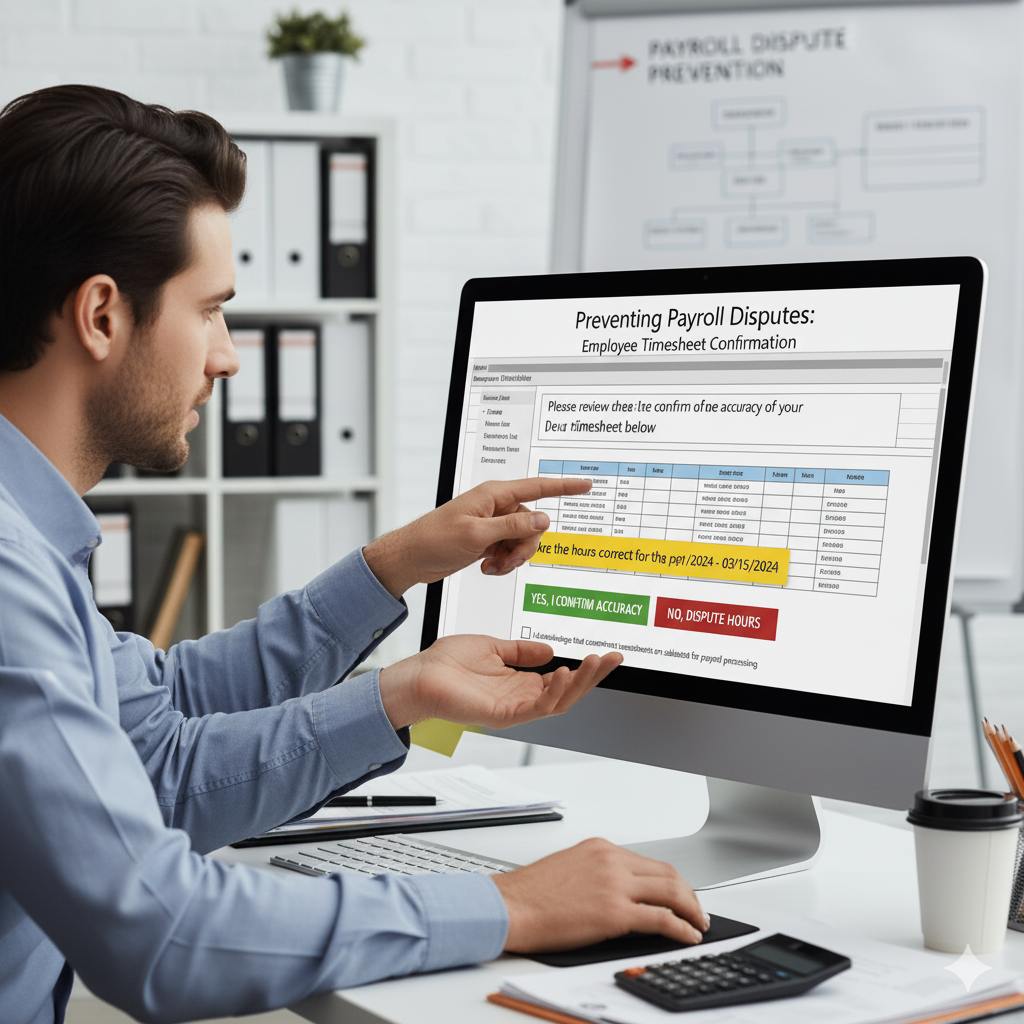Address
Kaypian, San Jose Del Monte City, Bulacan Philippines
Work Hours
Monday to Friday: 8AM - 6PM
Weekend: 10AM - 5PM
Address
Kaypian, San Jose Del Monte City, Bulacan Philippines
Work Hours
Monday to Friday: 8AM - 6PM
Weekend: 10AM - 5PM


Integrated HR. Accurate Payroll.


Integrated HR. Accurate Payroll.

Payroll disputes are among the most common and time-consuming challenges faced by HR and finance teams. From inaccurate work hours to unapproved overtime, even small discrepancies in timesheets can lead to employee dissatisfaction, compliance risks, and administrative rework.
Fortunately, modern Human Resource Information Systems (HRIS) now include powerful features such as employee timesheet confirmation — a simple yet effective process that ensures data accuracy, transparency, and trust between employees and employers.
In this article, we’ll explore how employee timesheet confirmation in HRIS systems can help organizations prevent payroll disputes, improve accountability, and streamline payroll accuracy.
Employee timesheet confirmation is a validation step where employees review and confirm their recorded work hours, attendance, and leave entries before the timesheet is submitted for approval.
This process allows employees to verify that their logged hours are accurate, ensuring transparency before payroll calculation begins. Once confirmed, the timesheet is locked or flagged as “verified,” reducing the risk of later disputes.
Key elements include:
Without proper timesheet confirmation, organizations often face recurring issues that impact both HR and employees:
These challenges highlight the importance of implementing a clear confirmation workflow in the HRIS system.
To effectively implement timesheet confirmation, consider these best practices:
✅ 1. Enable Self-Service Access: Allow employees to view and confirm their timesheets directly in the HRIS. A user-friendly interface encourages participation and timely submission.
✅ 2. Automate Reminders and Notifications: Set up automated HRIS alerts reminding employees to confirm their timesheets before payroll cutoffs.
✅ 3. Define Clear Policies: Establish written policies outlining confirmation deadlines, approval hierarchy, and the consequences of missing confirmations.
✅ 4. Integrate Attendance and Payroll Systems: Ensure real-time data syncing between attendance tracking and payroll modules to reduce inconsistencies.
✅ 5. Train Employees and Managers: Provide short training sessions or guides explaining how to review, edit, and confirm timesheets properly.
✅ 6. Monitor and Audit Confirmation Trends: Use HRIS analytics to track who confirms on time, identify frequent edit patterns, and flag departments with recurring errors.
Employee timesheet confirmation in HRIS systems is more than just a procedural step — it’s a strategic safeguard against payroll disputes. By empowering employees to verify their hours, organizations enhance accuracy, build accountability, and protect both financial and reputational integrity.
Investing in a robust HRIS timesheet confirmation workflow ensures smoother payroll cycles, happier employees, and a compliant HR ecosystem.